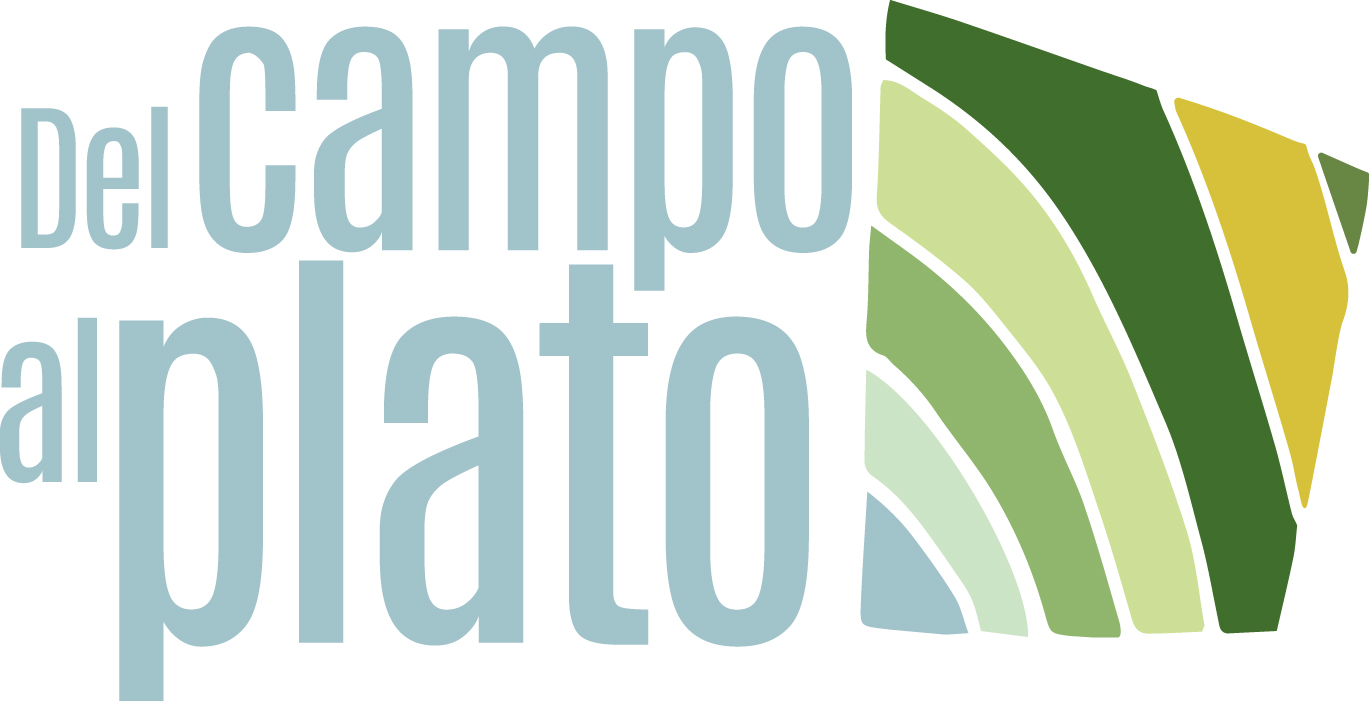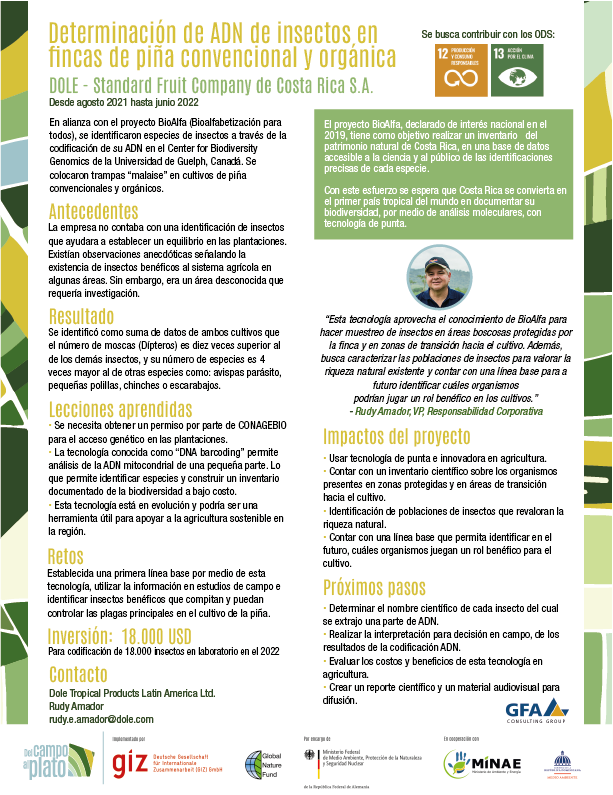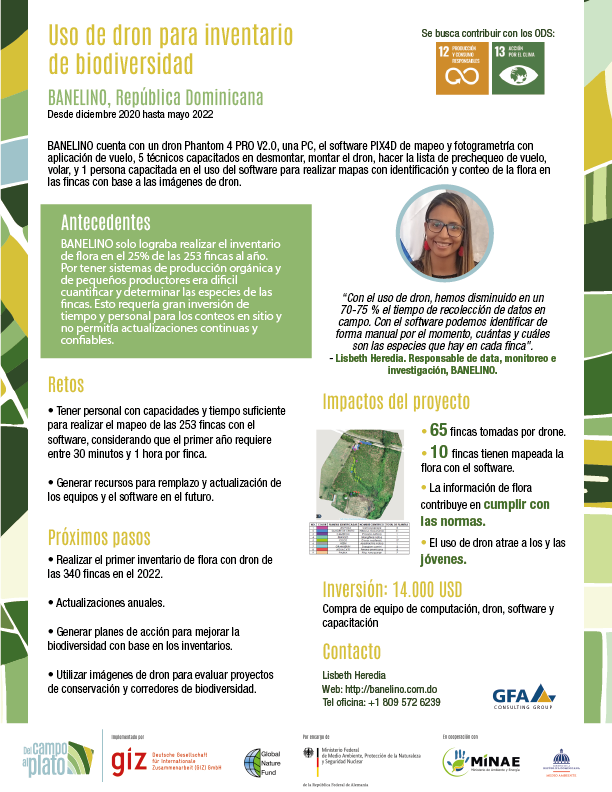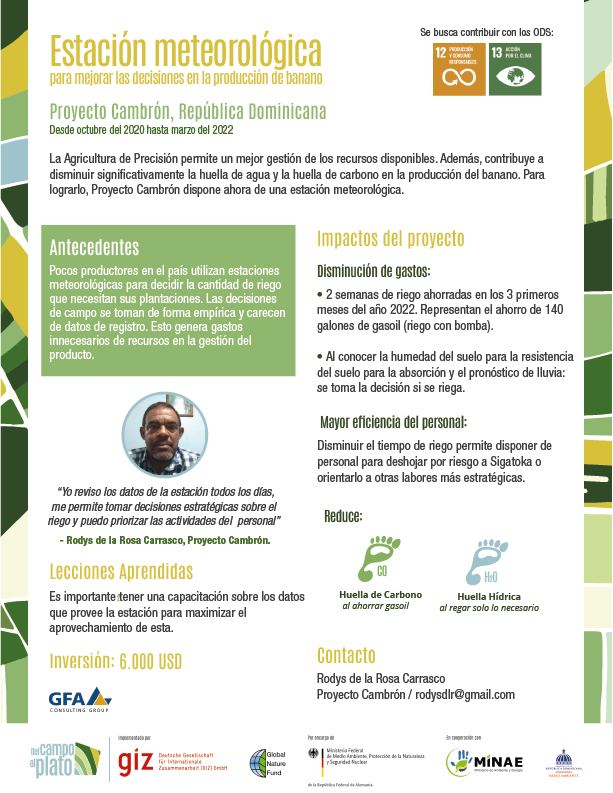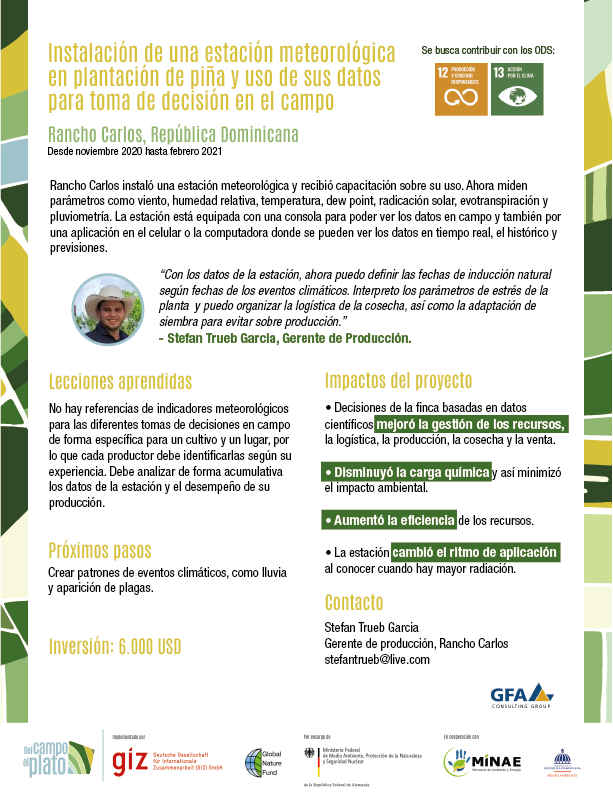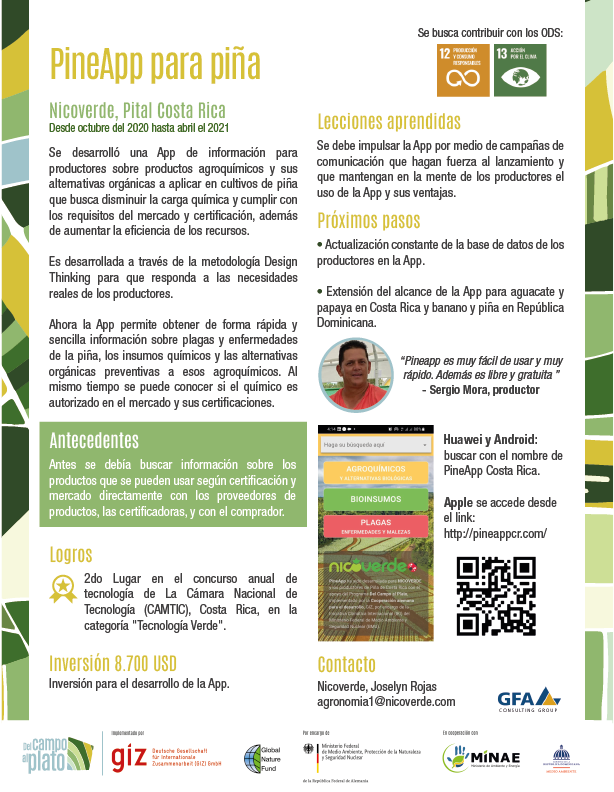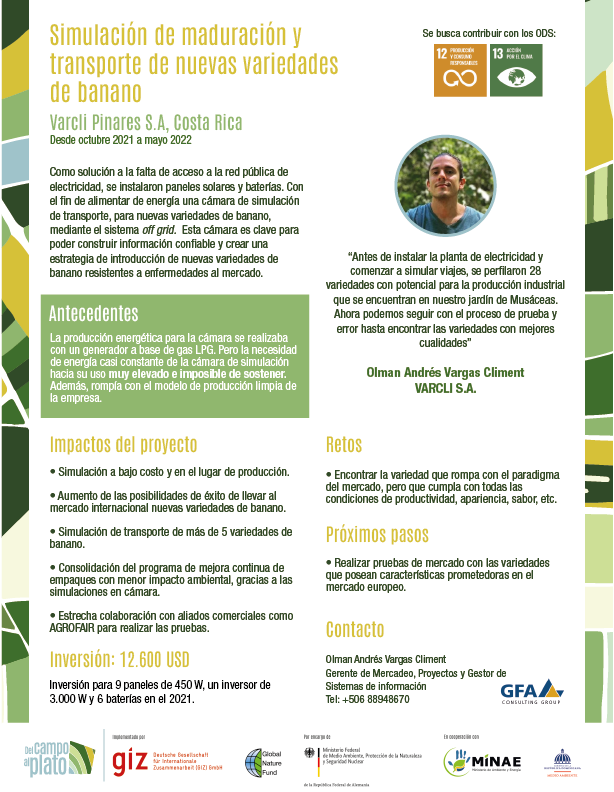Use of technology
Determination of insect DNA
Costa Rica
Between 2021 and 2022, DOLE, in partnership with the BioAlfa project, identified the insect species present in its plantations by analyzing their DNA. The number of flies was found to be ten times higher than that of other insects, and their number of species is also considerably higher than that of other groups.
DNA barcoding technology makes it possible to identify species and build an inventory of biodiversity at low cost. This technology could be a useful tool to support sustainable agriculture in the region. Thanks to the project, the company was able to identify insect populations that enhance the natural richness of the plantations and their surroundings.
Use of drone for biodiversity inventory
Dominican Republic
BANELINO acquired a Phantom 4 PRO V2.0 drone and the extra equipment needed to use it. In addition, staff was trained in its use. Based on the drone images, maps were created with identification and counting of the flora on the farm.
Drone monitoring was carried out on 65 farms, and flora was mapped on 10 farms, which will contribute to the compliance with nature conservation and protection regulations. A flora inventory is planned for all 340 farms, with annual updates. The use of drones attracts young people and contributes to the evaluation of conservation projects and biological corridors.
Drone trial for bioinput application
Costa Rica
In 2021, Nicoverde conducted a trial to develop and validate the use of drones for the application of biological inputs, which serve to control pests in pineapple crops. Ten applications were made on one hectare over a period of 5 months. Thanks to the project, product waste was reduced and field applications were streamlined. In addition, the carbon and water footprints were reduced.
In future trials, there are plans to apply the product at a lower altitude, reduce the application speed and make the applications at different times of the day. It was determined that it is important to take weather conditions into account when making applications and that it is necessary to analyze the costs of purchasing a drone versus renting the service.
Weather station
Dominican Republic
In the framework of the Cambrón Project, a weather station was built to decide how much irrigation their plantations need. This contributes to precision agriculture and helps reduce unnecessary expenditure of resources in product management.
Thanks to the use of data from the weather station, in the first 3 months of 2022, 2 weeks of irrigation were saved, which represents 140 gallons of diesel. By knowing the soil moisture and rainfall forecast, it is easier to decide to irrigate or not. In addition, irrigation time is reduced, which allows the staff to take care of other tasks.
Weather station in pineapple plantation
Dominican Republic
Rancho Carlos installed a weather station and received training on its use. The staff can now measure parameters such as wind, relative humidity, solar radiation and others. With the data from the station, natural irrigation dates can now be defined according to climatic events and harvest logistics can be better organized.
The project improved resource management, logistics, production, harvesting and sales. In addition, the chemical load was reduced, and with it the environmental impact as well. In this way, resource efficiency was increased, since the station changed the application rhythm by knowing when there is greater radiation.
PineApp for pineapple
Costa Rica
Between 2020 and 2021 Nicoverde developed an App with information on pests, diseases and agrochemicals and their organic alternatives to be applied on pineapple crops. The aim is to reduce the chemical load and comply with market and certification requirements, in addition to increasing resource efficiency.
The app won second place in the annual technology contest of the National Chamber of Technology of Costa Rica, in the “Green Technology” category. It is planned to update the App’s database on an ongoing basis, as well as to expand the App’s reach to avocado and papaya in Costa Rica and banana and pineapple in the Dominican Republic.
Banana transport simulation
Costa Rica
Varcli Pinares installed solar panels and batteries to supply a banana ripening and transport simulation chamber, replacing the old LPG gas generator. This chamber is necessary to obtain reliable information and create a strategy for introducing new disease-resistant banana varieties to the market.
The project has made it possible to simulate the ripening and transport of bananas at low cost and at the production site. This has increased the chances of successfully bringing new banana varieties to the international market. It has also consolidated the program for the continuous improvement of packaging with less environmental impact thanks to the chamber simulations.
